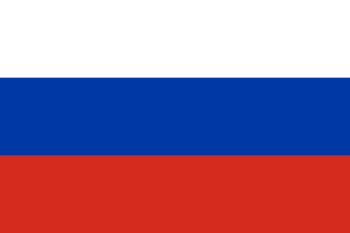Russian Language

Russian belongs to the Indo-European group of languages. Within this group, it belongs to the Slavic subgroup which consists of other European languages such as Ukrainian, Polish, Croatian, Bulgarian, Czech, and Serbian, among others. There are estimated to be close to 260 million speakers of the language all through the world, of which about 150 million are native speakers.
Russian is one of the official languages of many international organisations such as United Nations, World Bank, UNESCO, International Atomic Energy Agency, International Monetary Fund, International Olympic Committee etc. Since 1975, when the Apollo-Soyuz mission was undertaken, Russian has been one of the two official languages aboard the International Space Station.
The Russian alphabet consists of 33 letters and is written in the Cyrillic script. It was created by two Greek missionary brothers in the 9th century who based it on their native language. Over time, there has been significant give-and-take between Russian and English. Words such as sputnik, tsar, intelligentsia, samovar, pogrom, shaman, troika, and mammoth have become part of English and others such as computer, website, blockbuster etc have entered the Russian lexicon from English.. There has been an influx of words in Russian from other languages such as French, German, Persian, Italian, and Arabic too.
Early records of writing in Russian appeared in the tenth century in Novgorod. But the language they were written in was Old Slavonic that was generally used by the Russian Orthodox Church. Russian in its present form came into being in the 18th century when it was standardised with the Moscow dialect as the chosen base. In the mid-1700s, the first grammar book appeared and a few years later, the first Russian language dictionary was compiled. The 18th and 19th century are considered the golden age for Russian literature. Classics by renowned authors such as Tolstoy, Gogol, Pushkin, and Dostoyevsky made Russian literature popular all over the world. This language, however, was used in its spoken form mainly by the elite and literate from the upper strata of Russian society in the early 20th century. The others chose to use the local dialects with each other. All this changed by the middle of the century. The Soviet government introduced the compulsory education system which popularised the language and, as a result, now almost everyone in Russia speaks the same language. However, some features from regional dialects still creep in to the main language.
Copyright © 2013-2024 All Rights Reserved